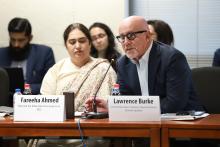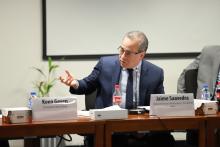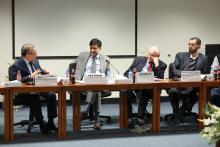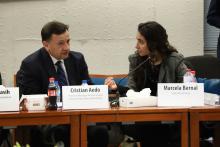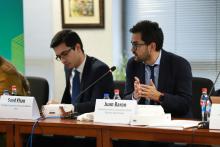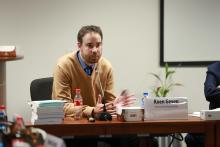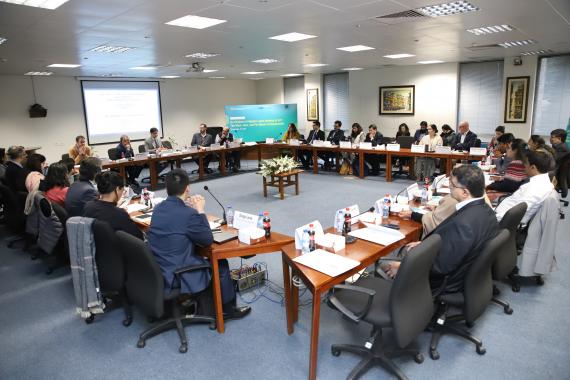
The policy roundtable ‘Do Children in Pakistan Learn Anything at all? The What, How, and For Whom of Assessments’, was organised on December 10, 2019 by the LUMS Syed Ahsan Ali and Syed Maratib Ali School of Education (SOE), the World Bank, and the Centre for Economic Research in Pakistan (CERP).
The event comprised of participants from the World Bank, including Jaime Saavedra, Global Director Education, Koen Geven, Economist, Tazeen Fasih, Lead Economist, Diego Luna, Education Specialist, Ezequiel Molina, Economist, and Neelam Ejaz, Analyst. Notable personnel from the public sector also attended the event, including Abdal Mufti, Head of Research and Policy Unit, PMIU, Ahmad Rajwana, Program Director, PMIU, Aasiya Khurram Agha, Adviser to Education Minister Punjab, Saad Khan, Strategic Consultant, Minister’s Reform Unit, and Sajid Zafar Dal, Special Secretary, Punjab Higher Education Department. From the private sector, Riaz Ahmed Kamlani, Executive Vice President, The Citizens Foundation, Lawrence Burke, Chief Education Adviser, Beaconhouse School System, Maroof A. Syed, CEO, CERP, Razia Fakir Mohammad, Assistant Professor, Aga Khan University, Institute for Educational Development, Fida Hussain Chang, Assistant Professor, IBA Sukkur, Irfan Muzaffar, Team Leader, Cambridge Education, Sahar Saeed, Deputy Director Research, Idara-e-Taleem-o-Aagahi, and Talha Munir Khan, CEO, Knowledge Platform, were in attendance, among others. Syed Babar Ali, Founding Pro Chancellor LUMS, also participated in the Policy Roundtable.
The roundtable proceedings were structured into three segments. The first session, led by Dr. Tahir Andrabi, Dean, SOE, focused on the conceptual framework around the ‘what, how and for whom’ of assessments, with reference to Pakistan’s experience. He emphasised how the expectations aligned towards getting better scores in Matric meddle with the overall goal of increasing learning, "Current high stakes exam systems are responsible for a lot of pedagogical and learning distortions in the education system."
The second session, led by Jaime Saavedra and Koen Geven of the World Bank, focused on the lessons learnt from Pakistan’s experience with existing assessments as well as insights from global efforts towards development of effective assessment systems. Mr. Geven identified that the key issue with assessment data is that it is not analysed in an integrated manner, and oftentimes the plethora of data collected is not utilised. Mr. Saavedra also commented on prevalent school violence: “There is a lot of violence in schools all over the world, between students, from teacher to student, even sexual violence is a big problem. If you have a lot of school violence, everything else is irrelevant - psychometric, pedagogy, etc.”
The final session, led by Dr. Faisal Bari, Director Academic Programmes SOE, and Riaz Kamlani of The Citizens Foundation, focused on concrete steps and actions required as well as the financial, human and organisational resources needed to move the current Punjab Assessment Policy Framework from a concept to a functioning and robust assessment system. Dr. Bari, while talking about the need to move the current Punjab Policy Framework from a concept to a robust assessment system, stated, “Learning is part of the horizon. It must factor into the framework for accountability”.
As the current Punjab government policy regarding the Punjab Examination Commission is now in the process of revision and reform, this roundtable came at an opportune time for academics, experts and practitioners to gather and review the existing stock of knowledge and information on the assessment experience in Pakistan, aimed towards conceptualising challenges and appropriate solutions in the redesign and implementation of the newly introduced Assessment Policy Framework in Punjab.
